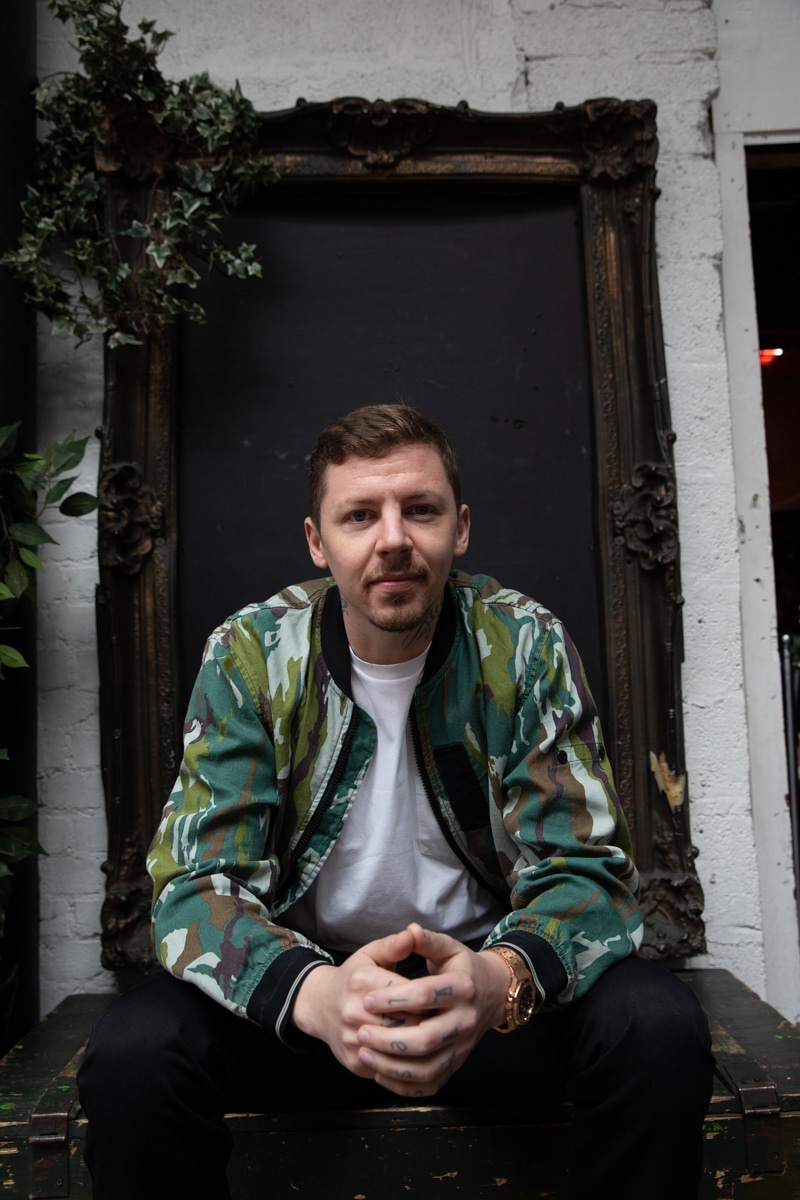INSIDE THE WORKSHOP FOR BETTER MENTAL HEALTH
A report on our workshop event which represented a deep dive into mental health to discover some, er, sea urchins of wisdom. Story by Salma Haidrani
This weekend The Book of Man held their inaugural workshop event, ‘The Workshop for Better Mental Health’, in association with suicide prevention charity CALM. Marking the end of Mental Health Awareness Week, panellists came together at Islington Metal Works for a day-long series of talks examining men’s mental health. It involved discussions around issues such as whether banter can be harmful, what role workplaces can play in improving well-being, the relationship between poverty and mental health, what it means to be a man today and more.
First to take the stage was PPA-nominated Book of Man columnist, musician and mental health campaigner Professor Green in conversation with The Book of Man founder Martin Robinson. Green welcomed the marked improvement in terminology when it comes to discussing mental health since growing up. “The term mental health didn’t exist,” he told the audience. “The word ‘mental’ was derogatory.”
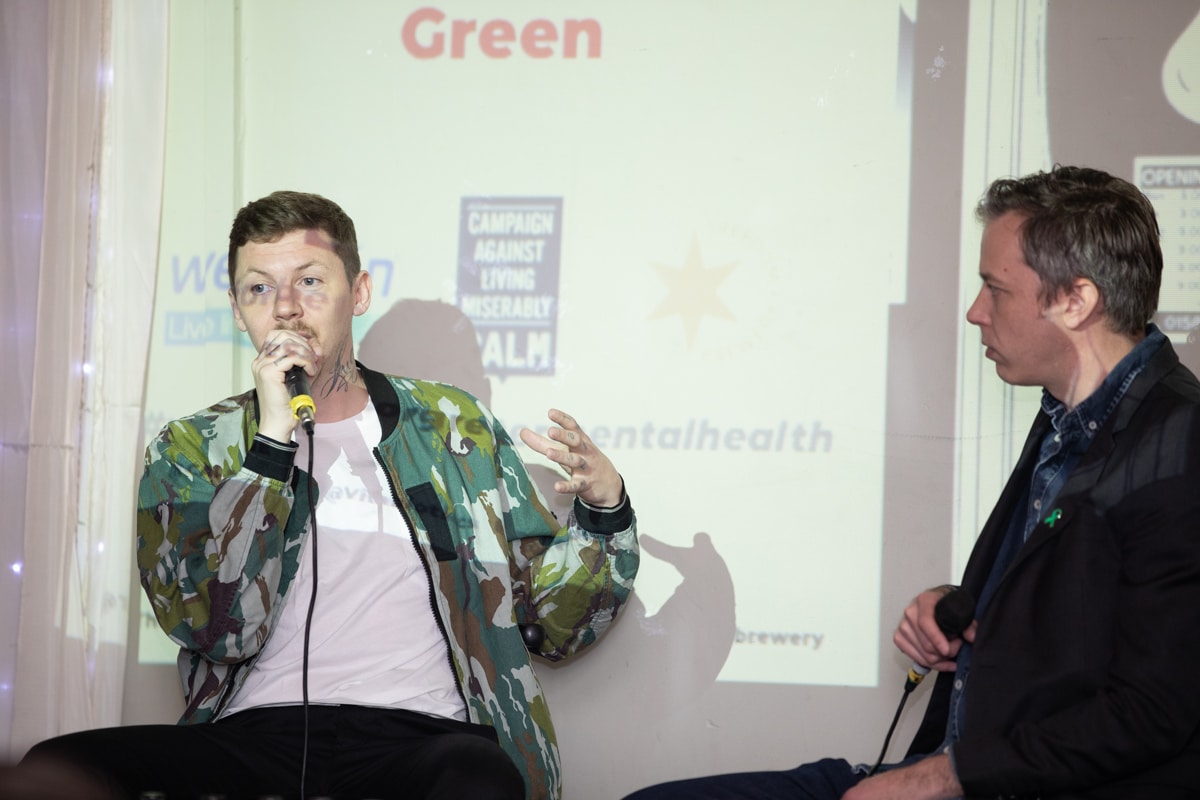
Green also touched on the impact of filming his widely acclaimed BBC Three documentary Suicide and Me which charted his father’s death, including what effect the documentary had on his friendships, the powers of journaling and switching off notifications. In a seemingly never-ending news cycle that centres on terrorism and war, Green stressed the need to prioritise well-being. As he affirms: “It’s not healthy to [always] be aware of global events.”
The impact of Green’s work resonating across the UK and transcending class, age and backgrounds isn’t lost on him. “What’s really encouraging [about the event] is the engagement with the Q&A,” Green tells The Book of Man after coming off stage. “It’s always the most encouraging part for me. People are opening up. It shows change, it shows that we’re creating spaces where people feel safe to be in a position to ask questions and start conversations. I never thought I’d be in this position. It’s so positive to see.”
‘WHAT IS THE MENTAL HEALTH CRISIS?’
Ben Hawley from CALM and Lucy Donoughue, host of Happiful magazine’s podcast ‘I am. I have’ assembled for second session ‘What is the Mental Health Crisis?’, joined by Alex Holmes, CEO of Diana Award and founder of the ‘Anti-Bullying Ambassadors’ and Adrian Garcia, Commander in Chief of SANE’s Black Dog Campaign. This panel sought to shed light on the social, economic and political causes of mental health. Each discussed the decades-old work of mental health charities and the role of celebrities in speaking out to de-stigmatise mental health, the impact of social media and whether we can attribute it entirely to anxiety and depression as well as supporting friends during crises. As Garcia-Miller tellingly recalled after taking his dog to the vet clinic, his vet said: “everyone looks after their animals better than their mates…and how do you know something is wrong with a pet? A change of behaviour. It’s the same thing with your friends.”
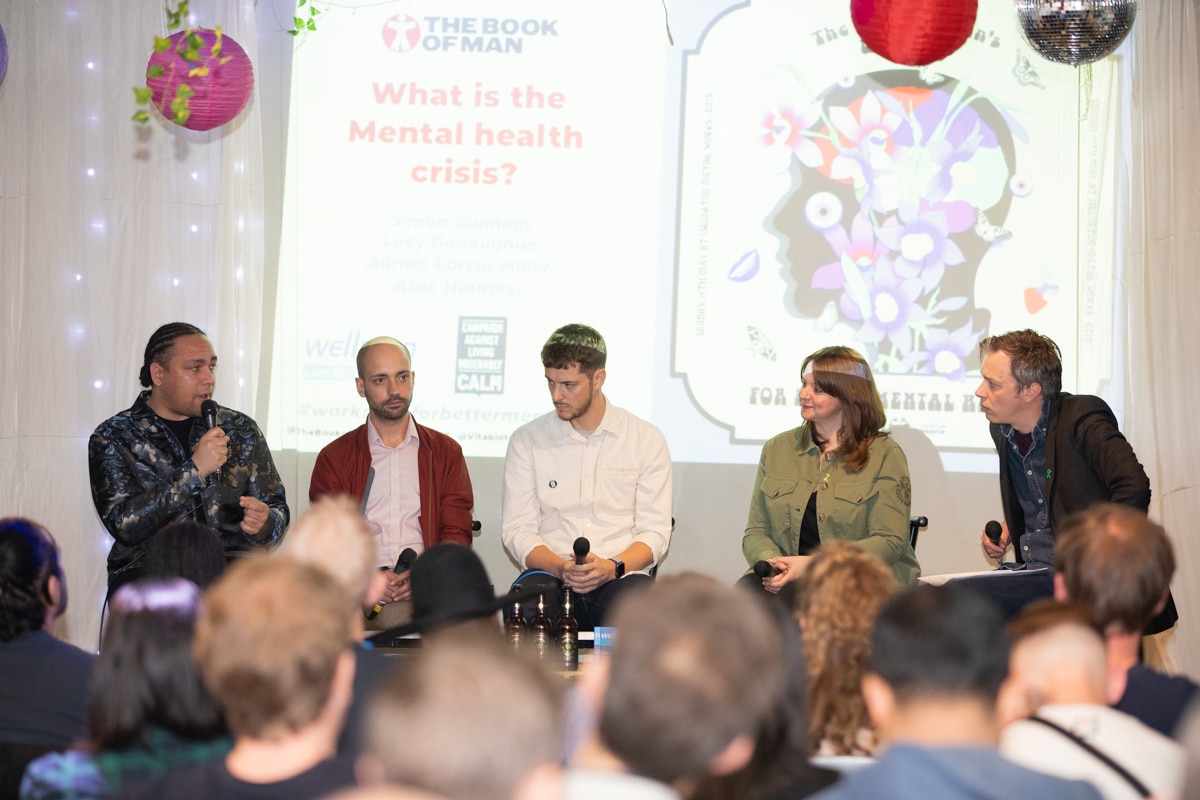
Holmes stressed that there also needs to be more of a commitment to include people of colour, minorities and the LGBTQ+ community in the wider conversation. “We know that mental health adversely affects these individuals and we still have a lot of work to bring them to the surface,” he says. “Those individuals are less likely to talk about their experiences, partly because of the stigma felt within these communities but also with parents and relatives.”
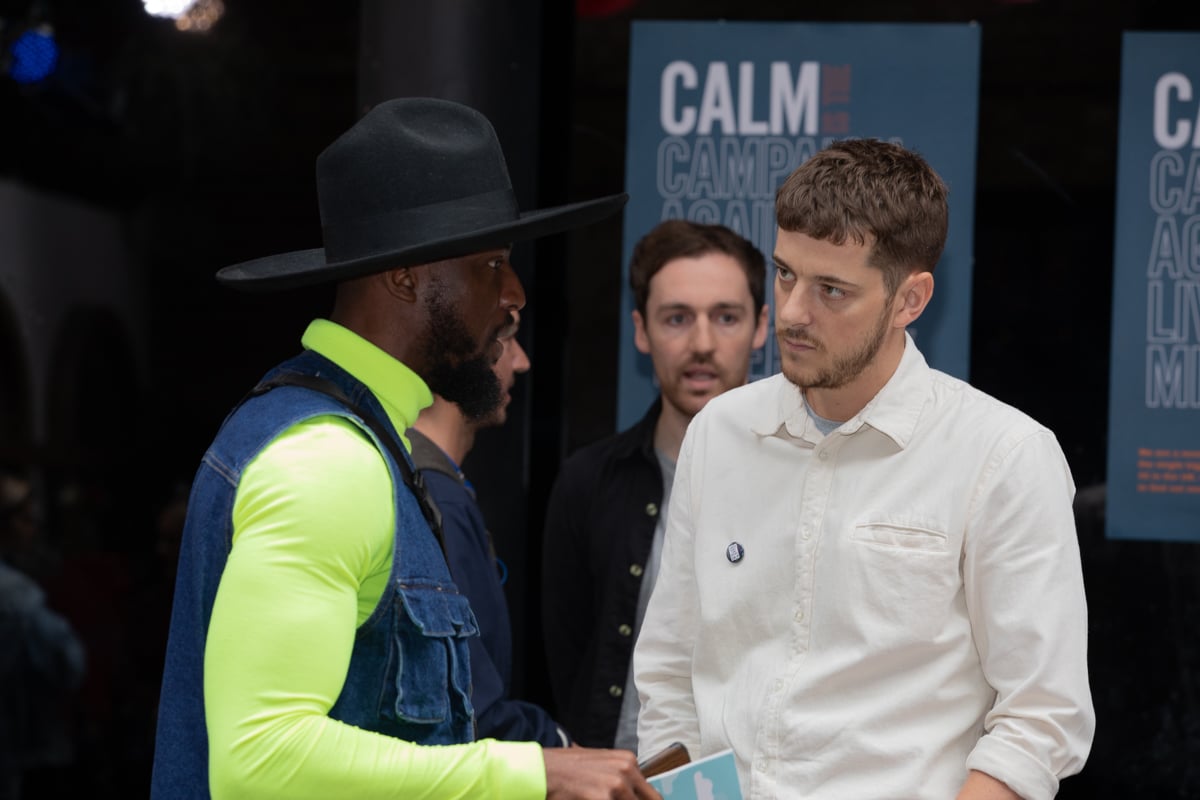
‘BEYOND BANTER: HOW MEN CAN HELP OTHER MEN’
Glenn Haughton, Ministry of Defence Mental Health Ambassador, Ian McKenzie, the co-founder of FC Not Alone, Fernando Desouches, Managing Director of New Macho and Derek Owusu, poet, podcaster, writer and author of the anthology SAFE: On Black British Men Reclaiming Space assembled for the third instalment ‘Beyond Banter: How Men Can Help Other Men’, which shed light on language and what men can do to build each other up.
Each of the panellists touched on how the language men use have evolved in their respective industries, from the advertising world to the armed forces. For Haughton, homophobic language was rife in the latter decades ago but this is no longer as commonplace, which he attributes to education. As the first Armed Forces Mental Health Champion, Haughton also talked about educating people about “mental fitness” as having equal value to physical fitness.
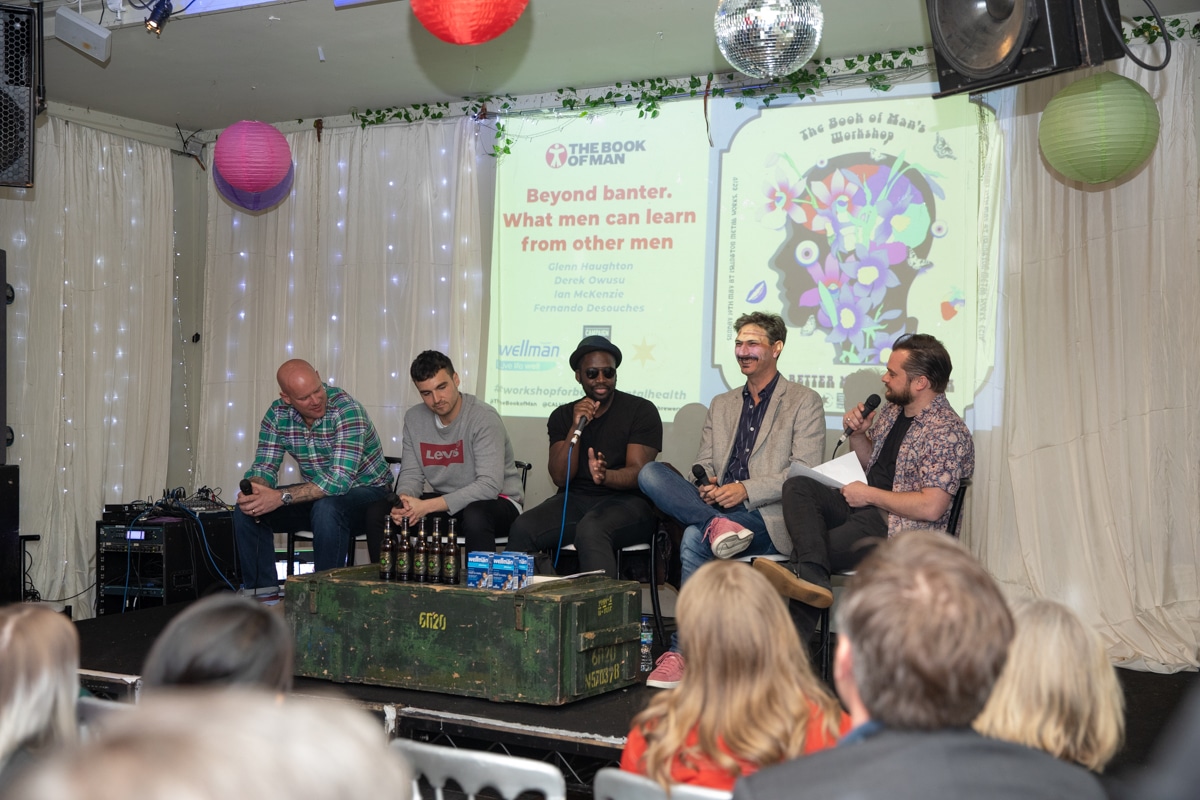
Discussing when men need to draw a line under taking the mickey and the potential for harm was also central to the discussion. Haughton, however, stressed that there’s a need for banter within male friendships, not least to establish a sense of camaraderie: “We need humour. We need to laugh,” he told the audience. The power of men building each other up and establishing safe spaces such as Andy’s Men Club, a support group that tackles the male suicide crisis, was also a focal point of the panel. This is particularly pressing since research found that more than 2.5 million British men have no close friends they’d turn to for advice in a crisis, with partners often shouldering the brunt of its impact.
One of the most powerful part of the panel was Desouches calling for an urgent rebrand of how we define success for men – at present this centres on breadwinners and ‘warriors’, complete with gym-honed physiques and making a lot of money. “The playbook of the past doesn’t work anymore,” he insists. “We need to change the definition of success for men. It’s very materialistic.” As Desouches affirmed: “there are many ways men can succeed.”
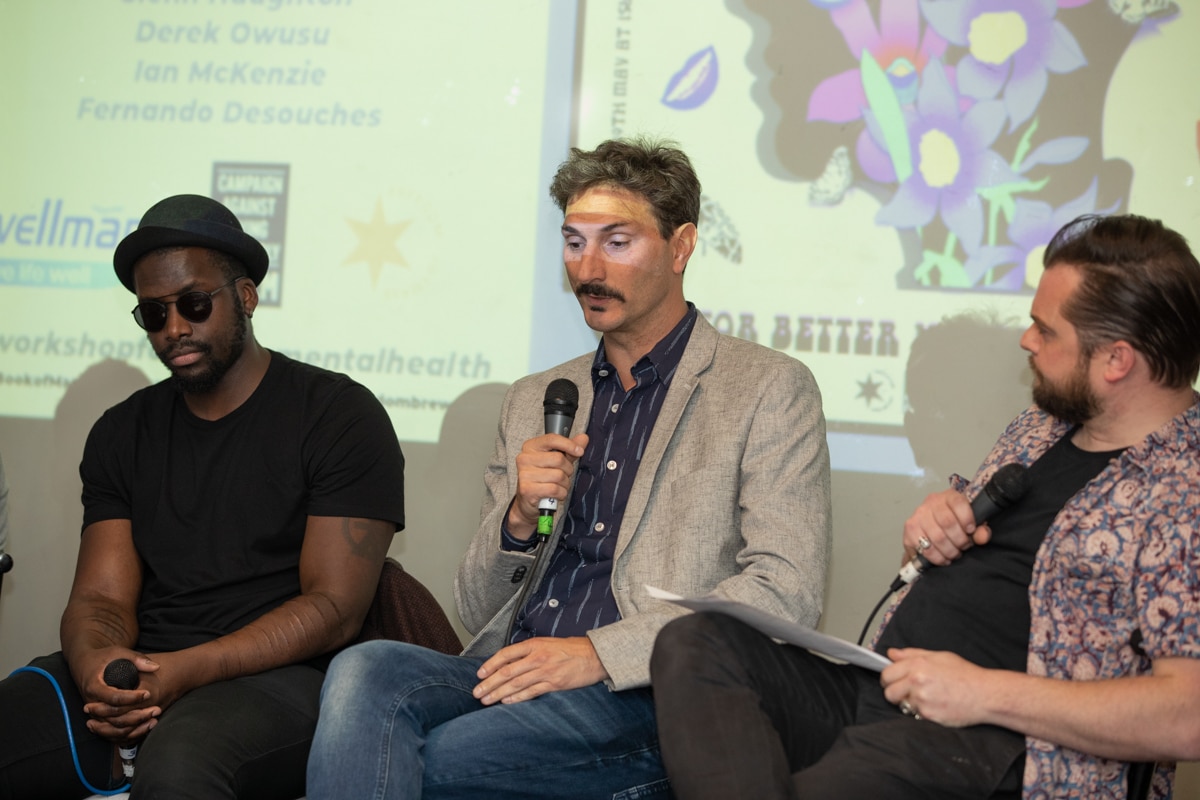
For Owusu, there’s a need to include PoC and black men in the wider mental health conversation, not least as black British men are more likely to be diagnosed with mental health problems than their white counterparts. Though research found that at age 11, African-Caribbean boys are not likelier to be present with a diagnosable mental health condition compared to their white counterparts, by adulthood, the stats are significantly bleaker: a black man is 17 times more likely than a white man to be diagnosed with a serious mental health condition such as schizophrenia. Meanwhile, black people are four times more likely to be sectioned under the Mental Health Act.
Resistance to seeking help, for one, could account for this, according to Owusu. “I think that for a lot of black men, they don’t believe that people actually care about them,” he says off-stage. “They don’t feel that a lot of people actually care about their mental health especially so they won’t tell anyone. They’ll think it’s futile.” Men might be significantly less likely to visit the doctor as their female counterparts, in part as they find complaining about their health a ‘weakness’ (one study found that 60% of men put off visits and it’s their partner who encourages them). But Owusu suspects that this statistic could be significantly higher for black men since they were found to find interactions with their doctor stressful: “For black men [that could be] double.”
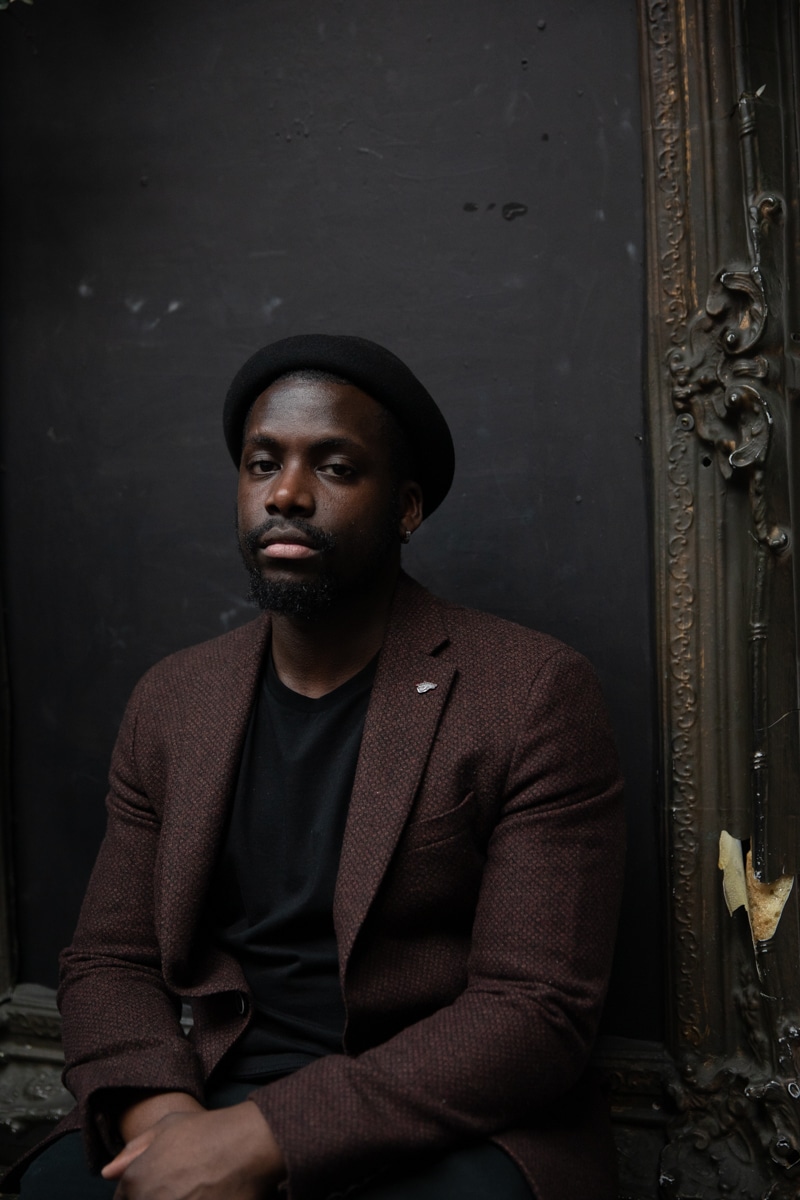
Given the silence and taboo surrounding mental health that persists within black communities, Owusu remains committed to de-stigmatising this. Avoiding ‘soft terminology’ that does little to get to the heart of the issue is crucial. “I’m not trying to use euphemisms for what people are going through,” he says. “If someone says, ‘oh I feel down today’ or ‘today I’m anxious’, you need to ask ‘OK and what is that making you do?’ as anxiety isn’t the problem. It’s the consequences of anxiety or depression that’s the issue. Whenever I try and talk to someone, I try to delve deep and get into it as much as I can. You can’t solve a problem if you’re not talking about the actual issue.”
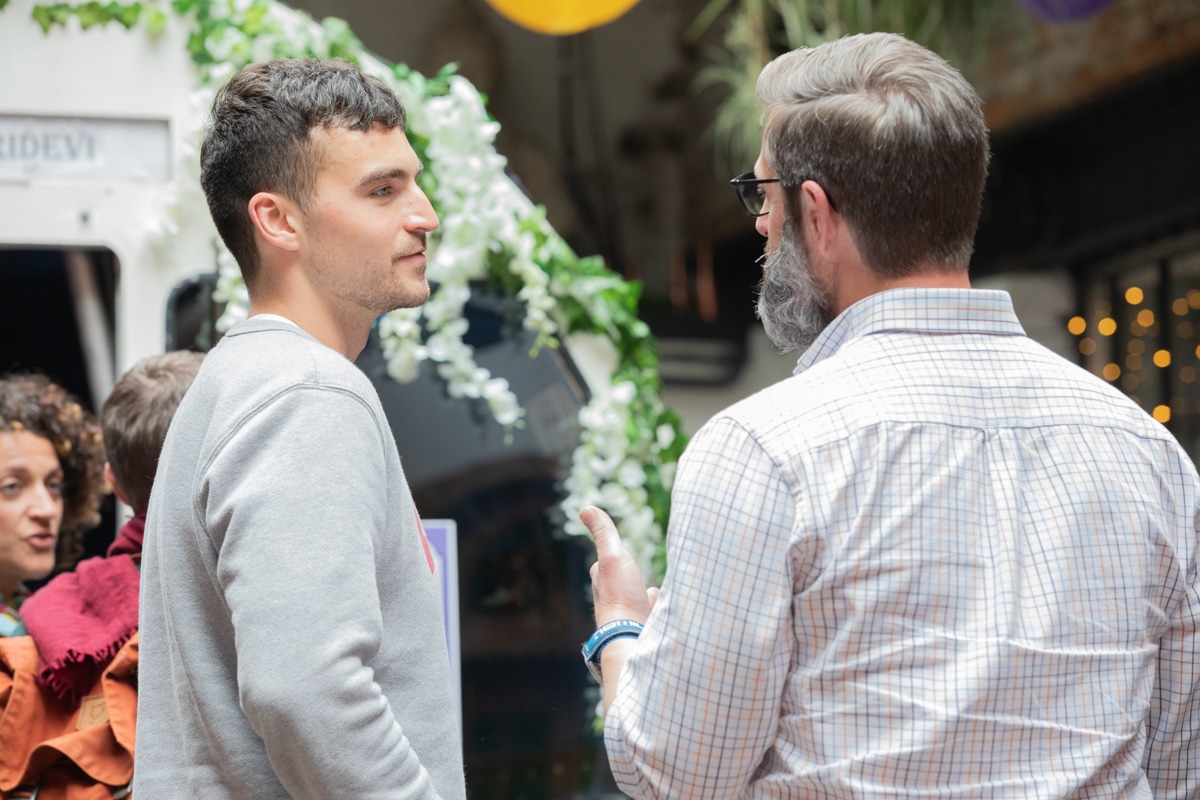
‘EQUALITY AND MENTAL HEALTH’
The ‘Equality and Mental Health’ panel’ explored whether gender equality could lead to improved mental health for men. Host Victoria Brooks, the Vice President of Bloom UK, was joined by Matt Bourn, Director of Communications at the Advertising Association, Nancy Lengthorn, Head of Diversity, Inclusion and Future Talent at Mediacom, digital leader and strategist Hannah Mirza, and Will de Groot, co-founder of creative company The Elephant Room and the platform Mend, which aims to research deconstruct masculinity for the 21st century.
Discussing how men can play a valuable role in the workplace post #MeToo was central to the panel. Exploring the value placed on the ‘alpha male’ culture, why it continues to prevail and how, as Victoria said, “the alpha environment – both alpha male and alpha female – can be detrimental for both men and women.” They also discusses whether workplaces should shoulder greater responsibility when it comes to their employees’ mental health was also explored. After all, research from Mind found that 1 in 5 people wouldn’t disclose their mental health condition for fear of being sacked or forced from their jobs. Lengthorn talked about the Mental Health Allies program she set up at Mediacom but noted that most of the male employees will seek help, “Only at crisis point, whereas the women tend to use it earlier, and more regularly.”
De Groot stressed that challenges remain in the workplace, not least when the stigma around mental health continues to persist, which could account for why workplaces might be reluctant to implement change. “There’s a lot of shame attached to mental health like taking time off work, being seen as a failure, feeling like a failure, feeling like you can’t cope,” he says. “All of these are impactful in terms of how you feel about yourself in the world of work.”
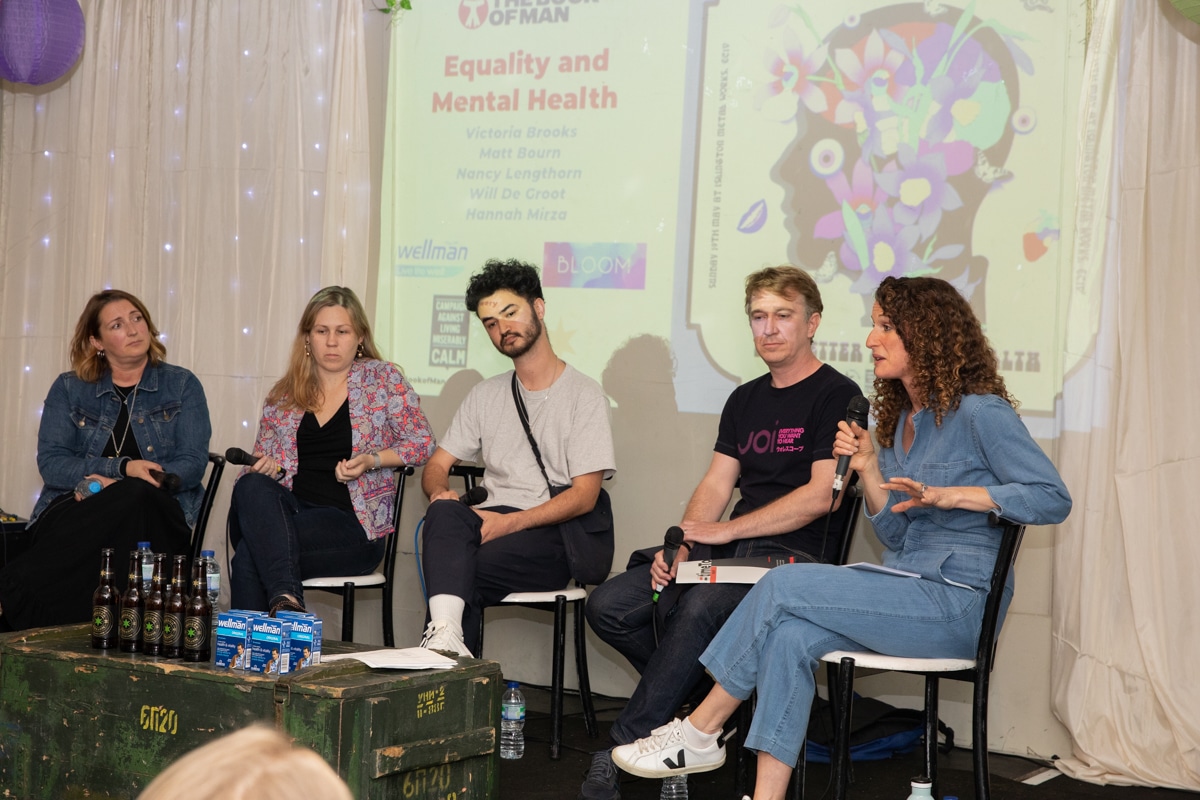
Though De Groot applauded the event – “today’s been really interesting. It’s always an eye-opener and there’s always an amazing opportunity to hear so many different perspectives” – he conceded that opportunities for men to discuss their own experiences remains few and far between, which could consequently serve to isolate this group further. “There’s a real absence.”
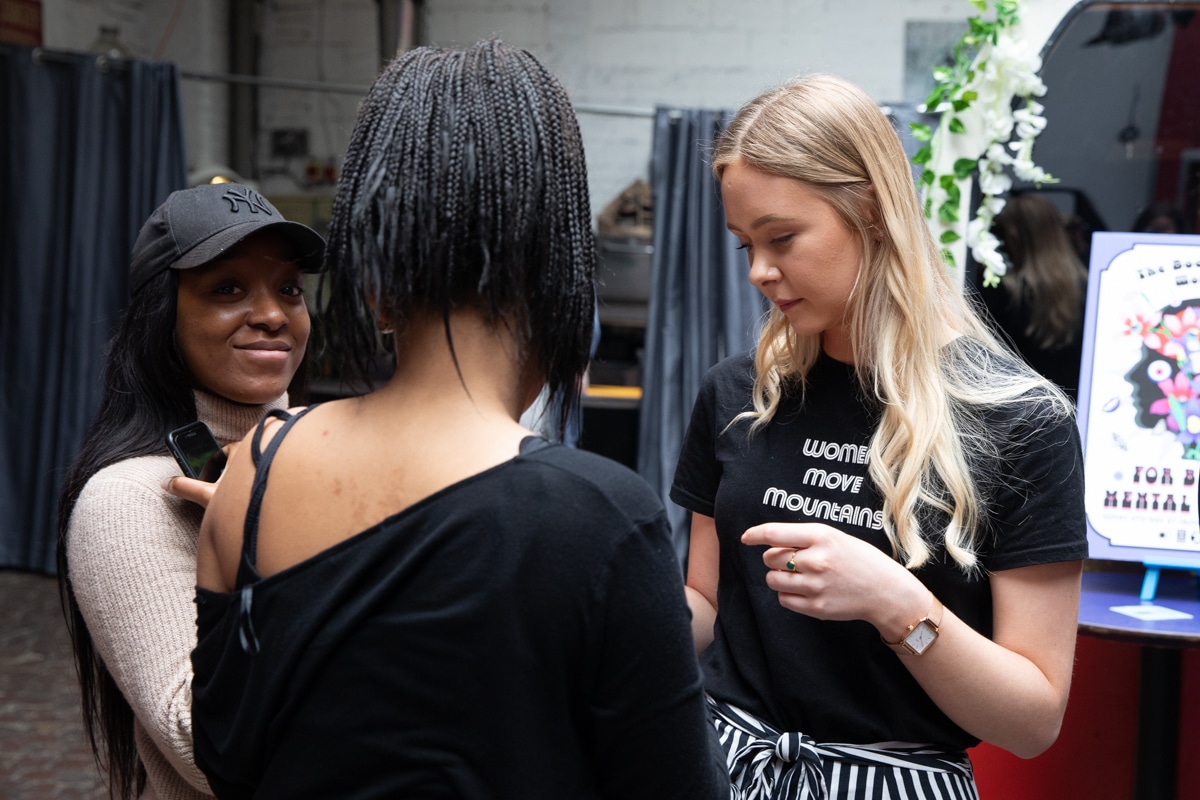
‘WALLS OF SILENCE’
The final panel, ‘Walls of Silence’ discussed what could be done to break through to men who need it the most. It saw rapper, poet and musician Dizraeli, author of ‘Him+His’ and model Héléne Selam Kleih, choreographer Brendon Hansford, mental health activist and fashion entrepreneur George-David Hodgson and Christian Hurley of Ball Street Network and YouTuber Lawrence McKenna take to the stage. The harmful effects of social media and its effects on isolation were a focal point of the panel, as was exploring whether social media companies should shoulder the responsibility for exacerbating mental health issues or whether the onus is on the individual. McKenna thought there was still a way to go in getting working class football crowds involved in new conversations around men, but Kleih stressed her Him + His events were drawing large buzzy audience by creating comfortable spaces for the conversations to happen. Dizraeli was keen to stress a bigger picture too: “We have to think about changing the system we live in, which is built on dissatisfaction. Buy this, and feel better. It is not conducive to good mental health.”
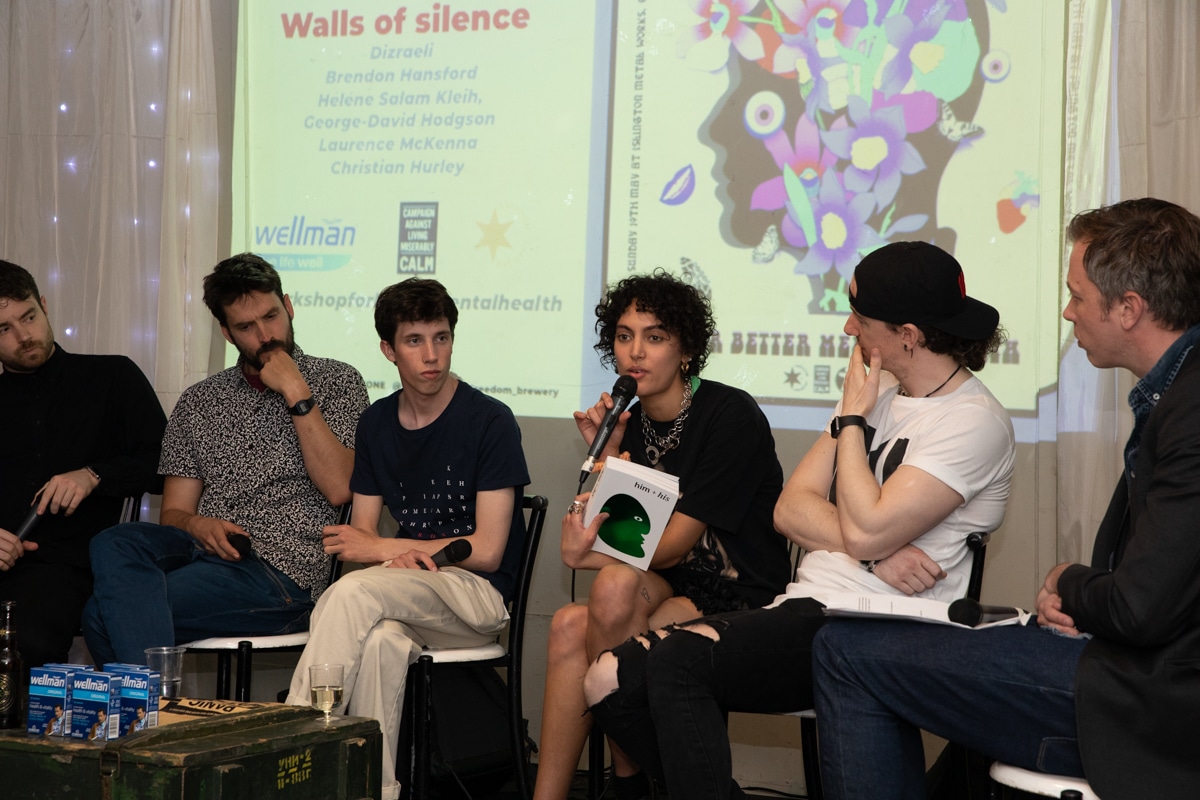
The day also featured brilliant spoken word performances from David AKA Cloudee.words and Dizraeli who both delivered performances about men and mental health which truly hit home.
The Workshop for Better Mental Health sought to build support, encourage openness and create positive change. The event’s certainly achieved all three – as Green affirmed after coming off-stage: “We’re creating spaces where people feel safe to be in a position to ask questions and start conversations”.
Thanks to our partners Wellman for supporting this event, and for supporting men’s all round well-being, as an organisation.
Also thanks to our friends at Freedom Brewery for their partnership and for assisting audience members in asking questions by supplying question cards for us. Important for those too uncomfortable to ask what’s on their mind.
Ticket proceeds from the event are going to our other partners, CALM. Thanks to Neil and the team, as ever.
Illustration by Berta Vallo.
All photographs by Megan Kellythorn. More great images from the event are below.
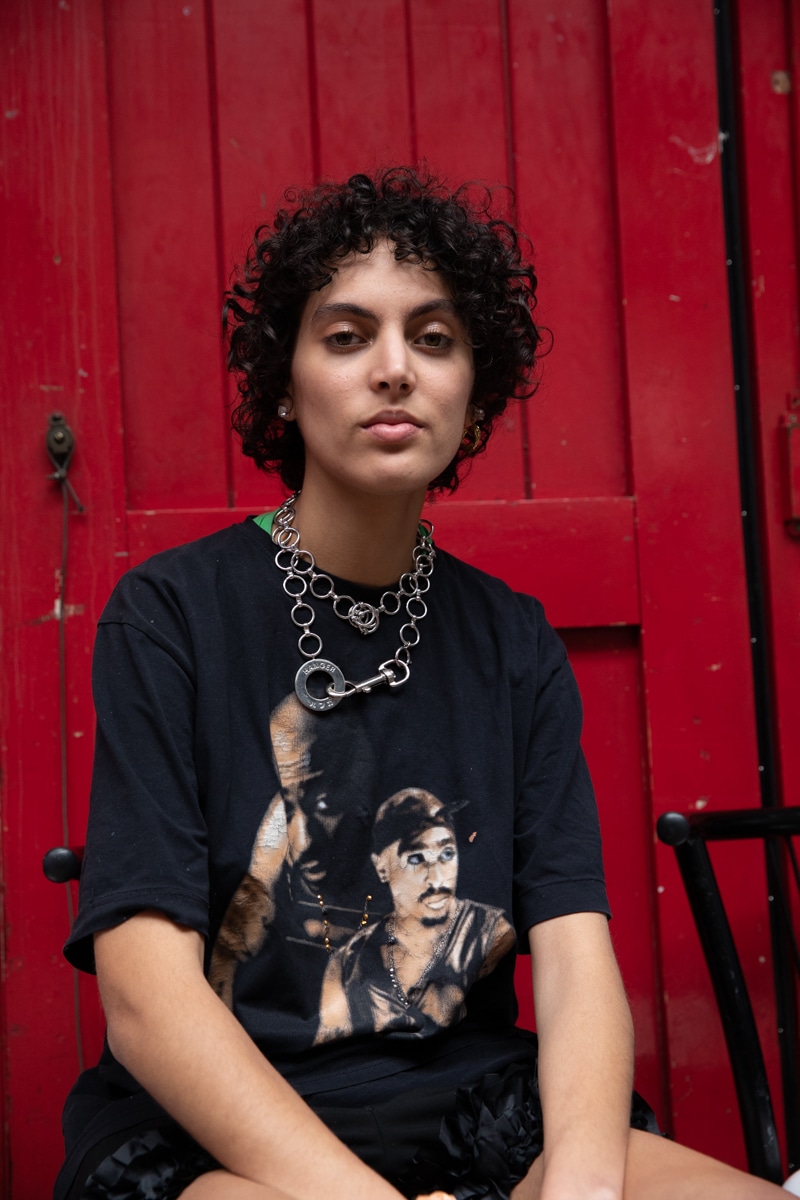
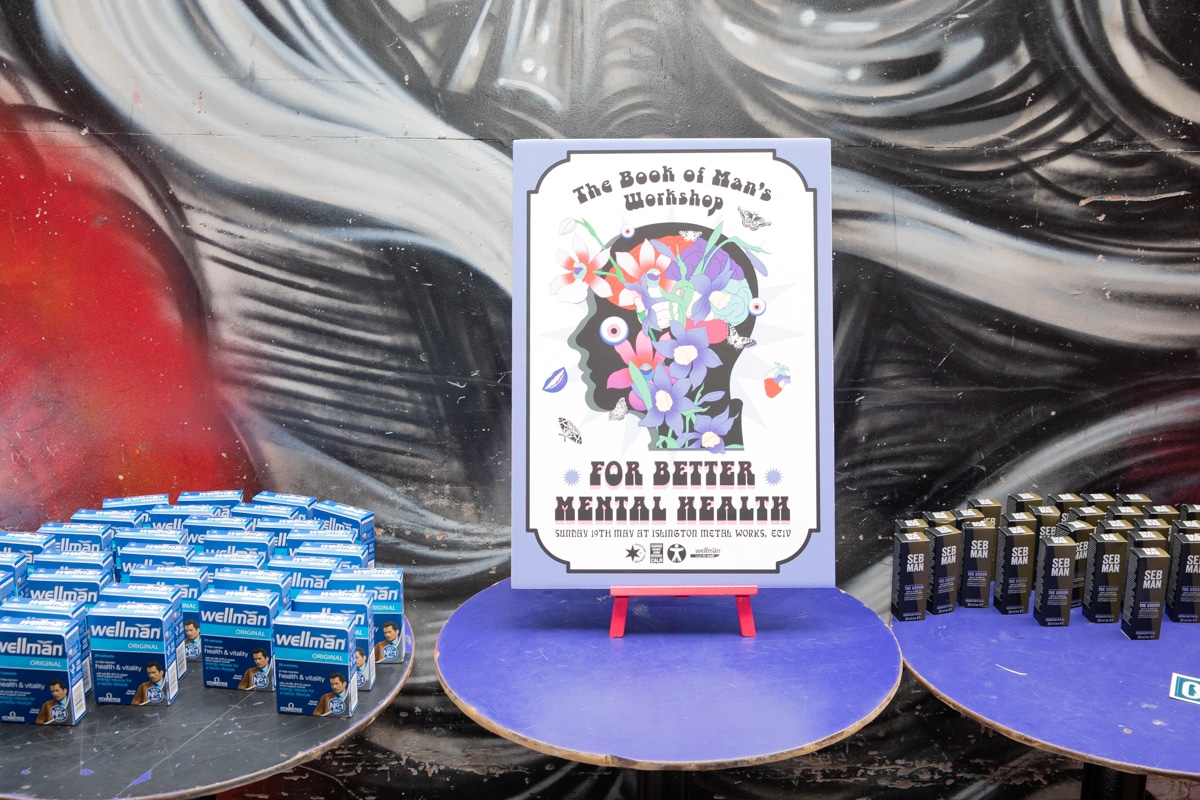
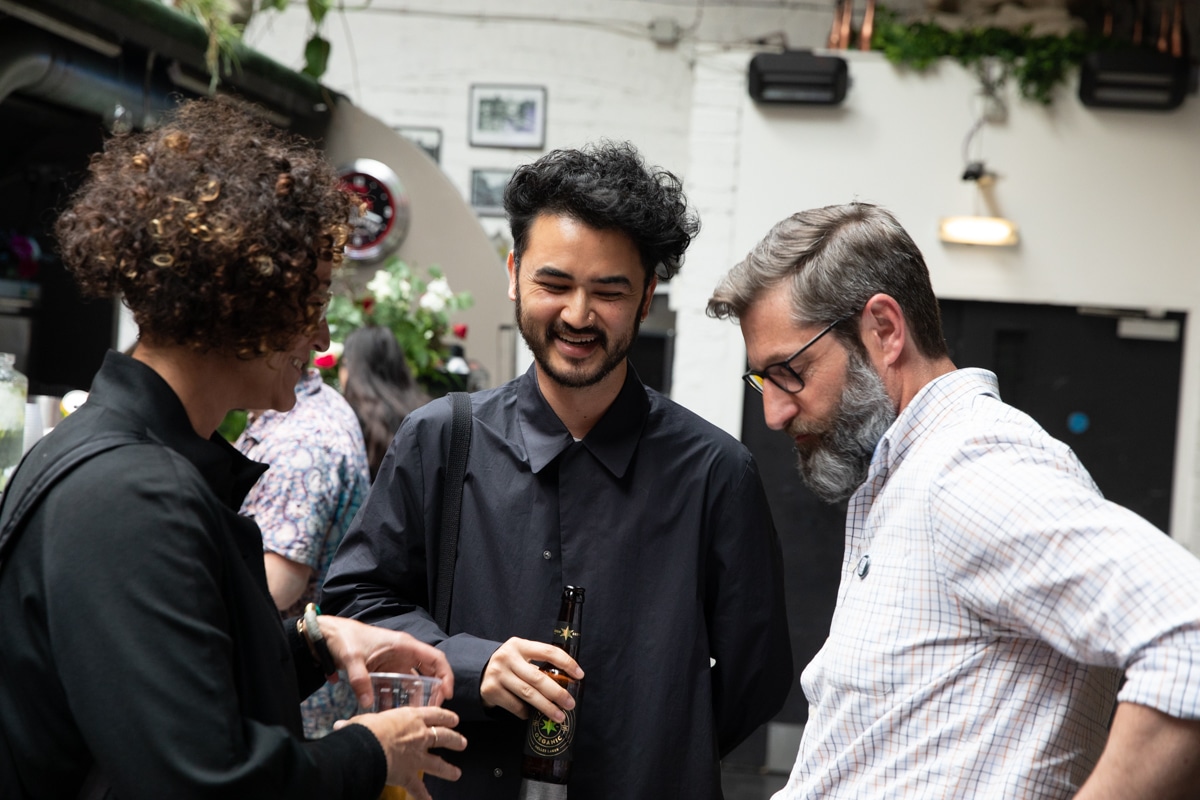
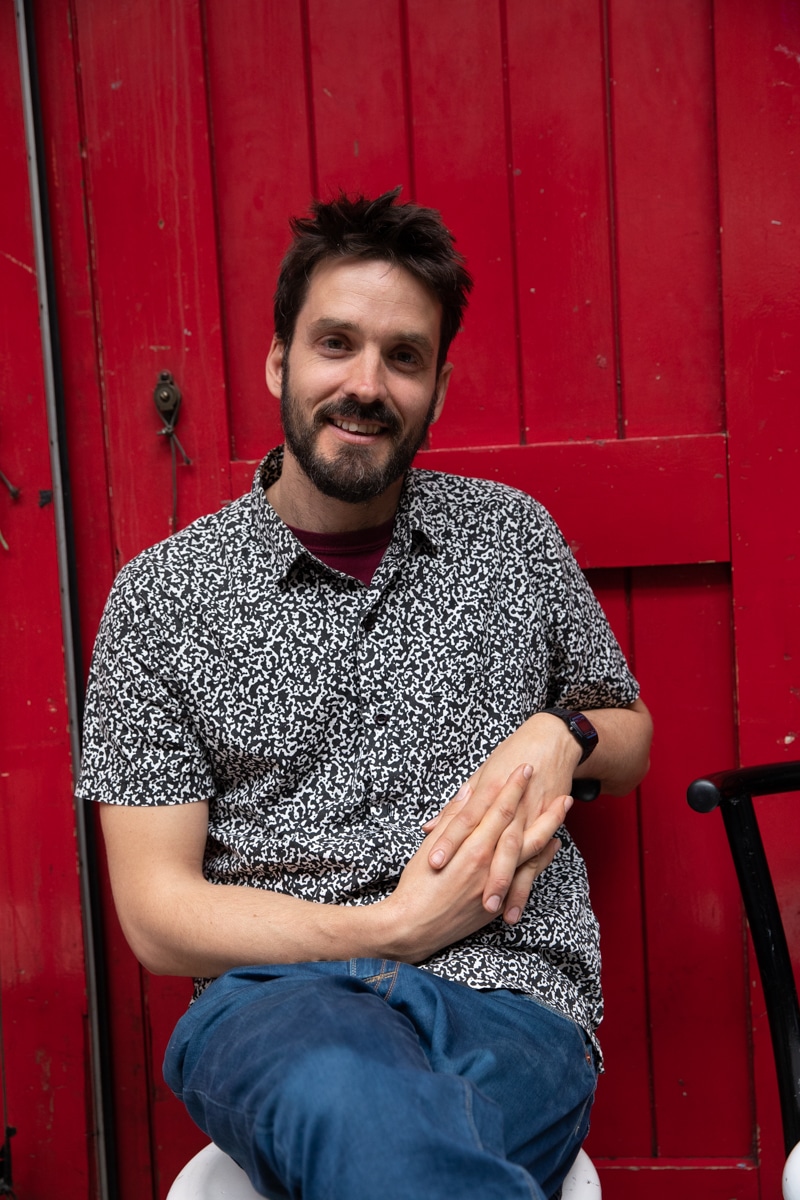
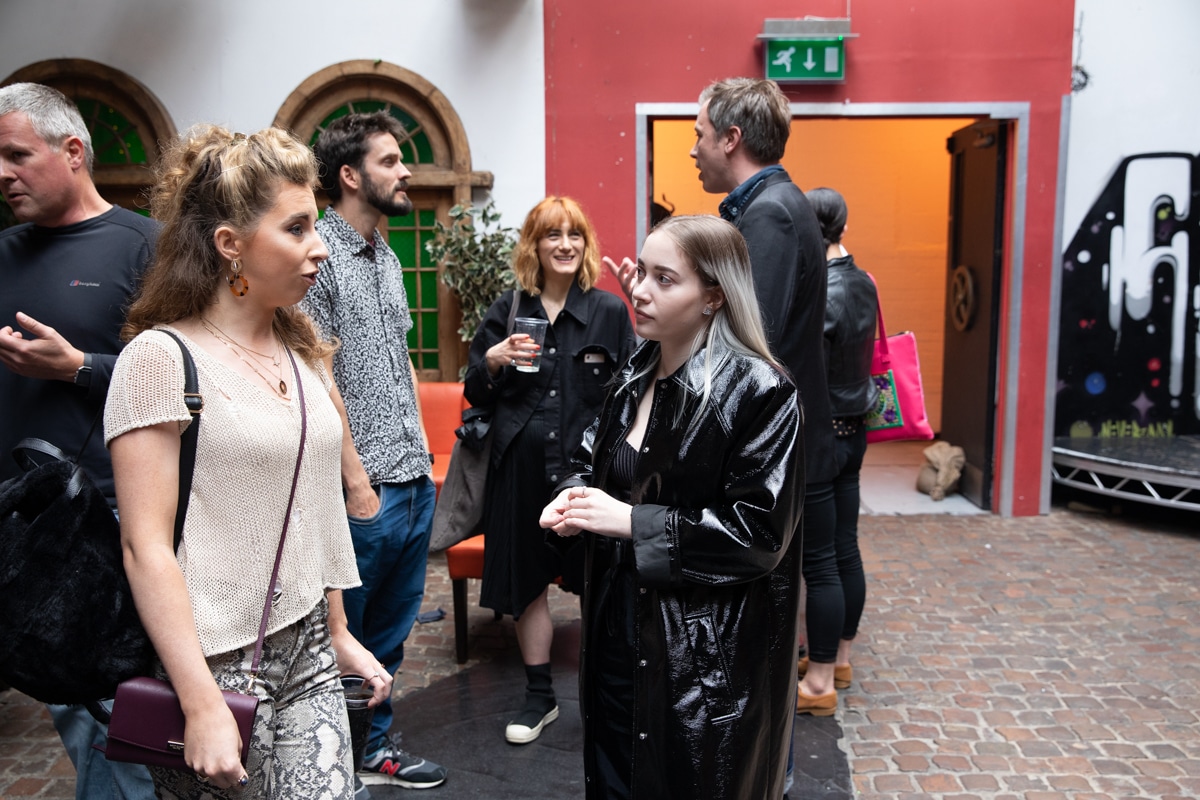
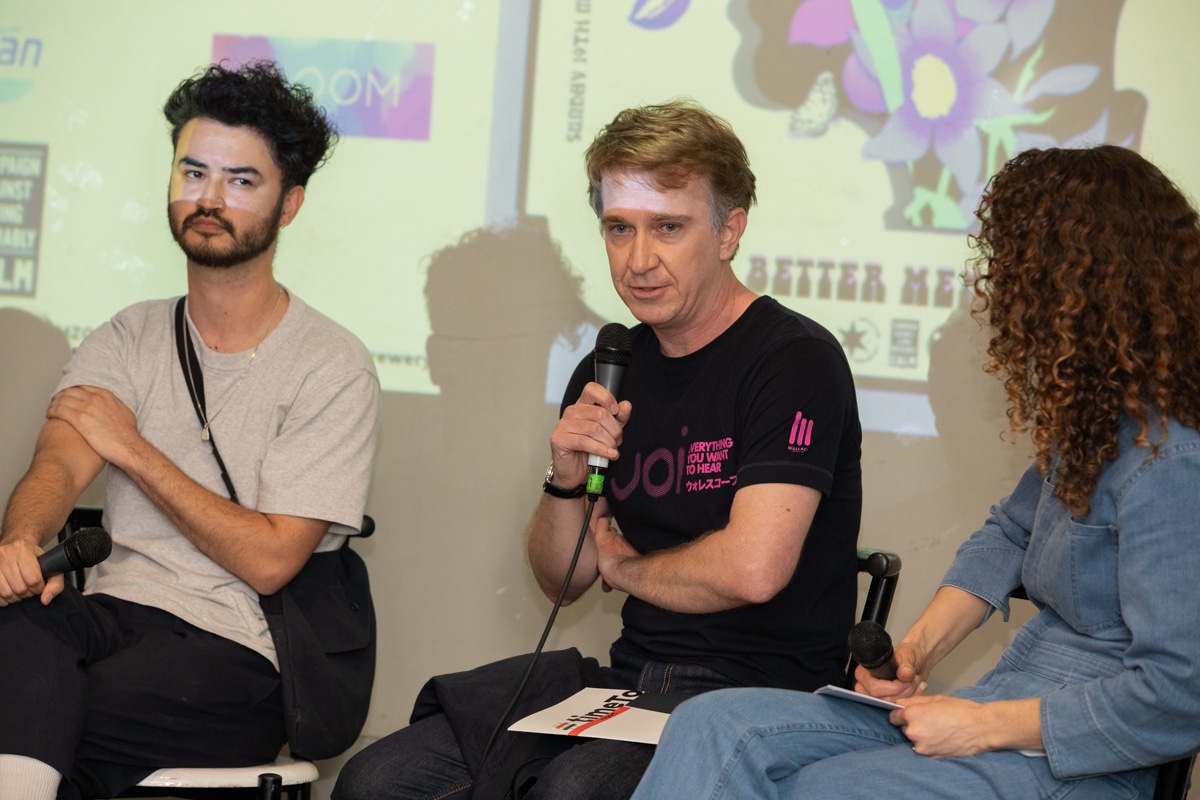
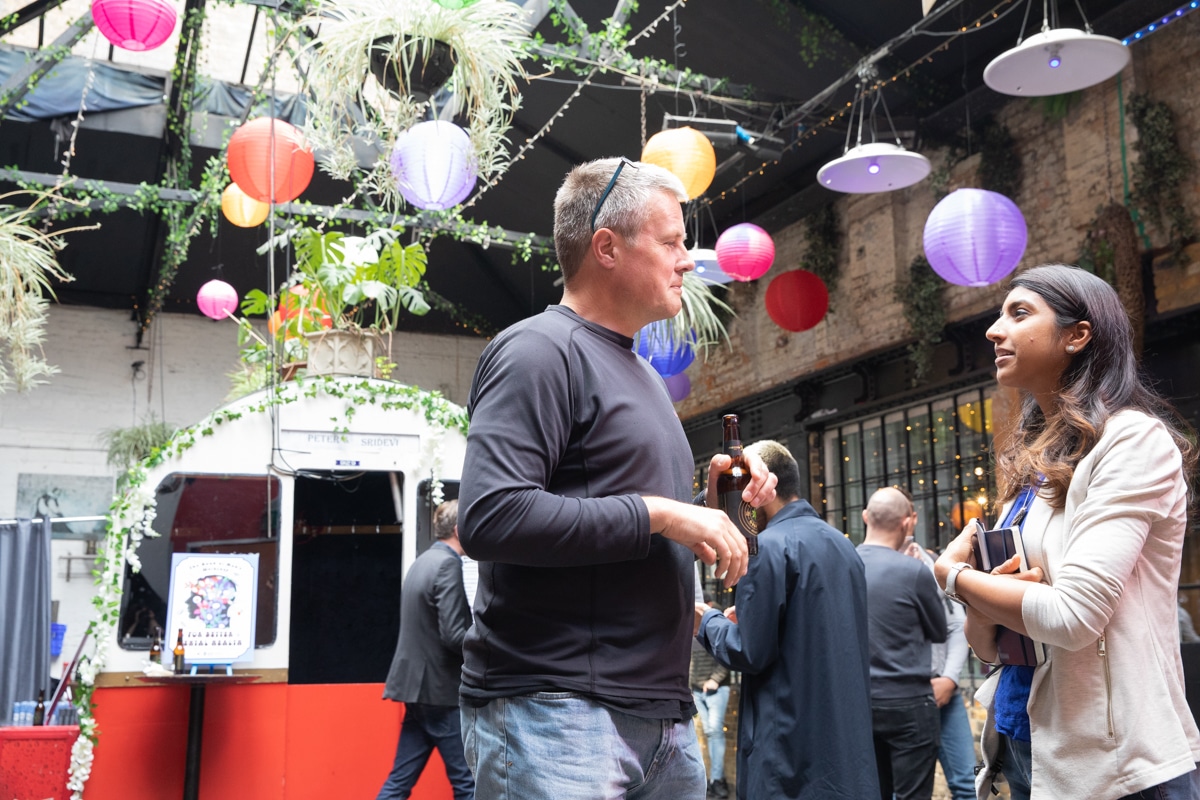
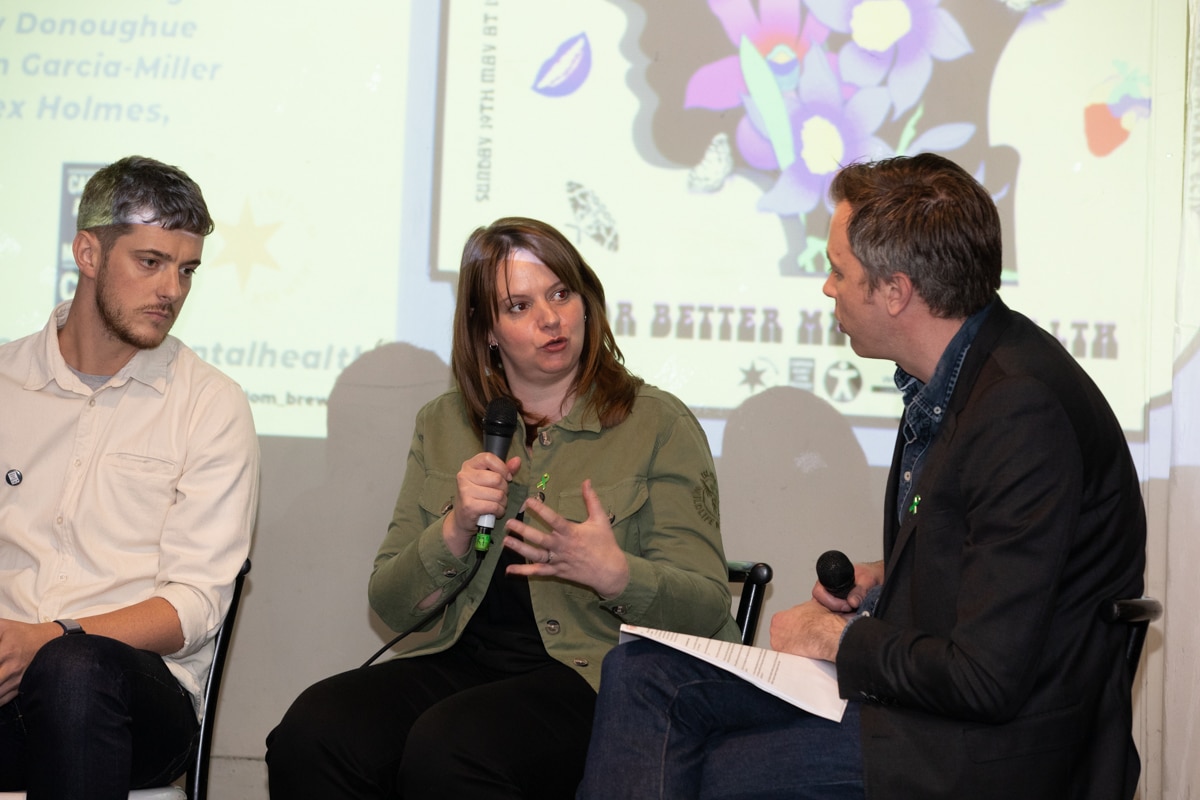
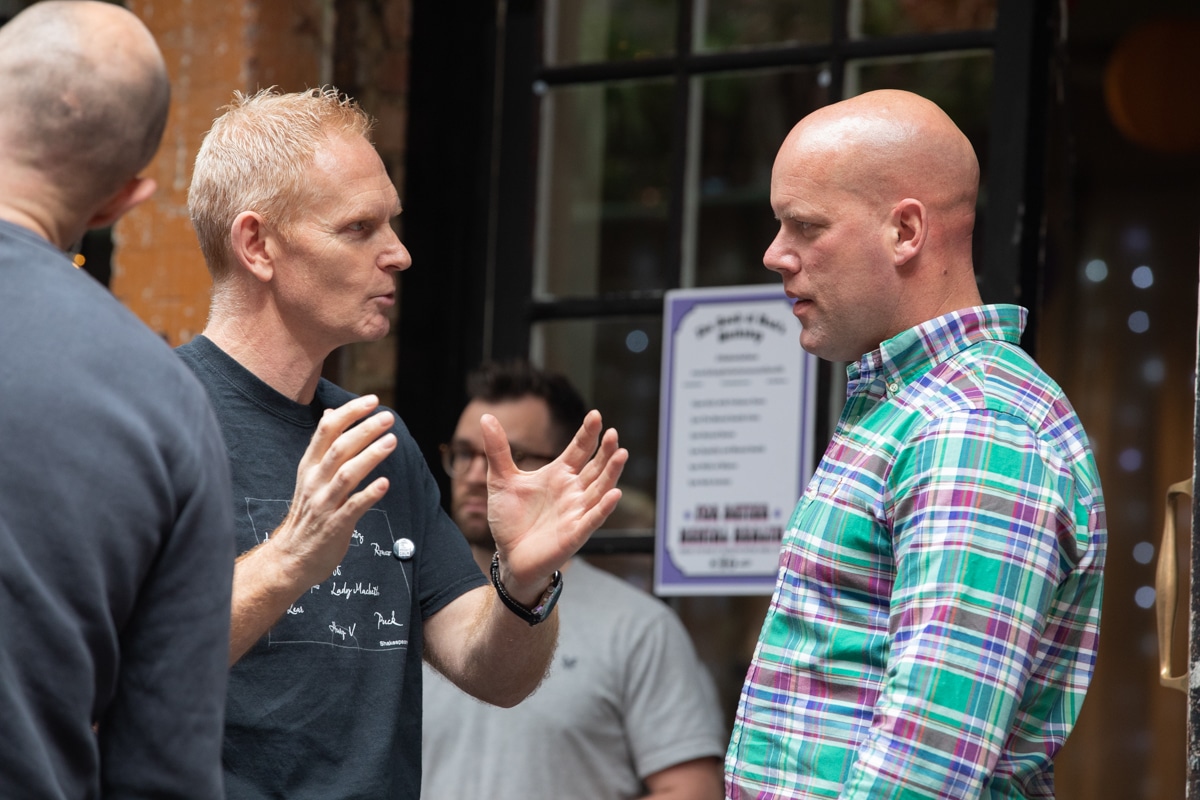
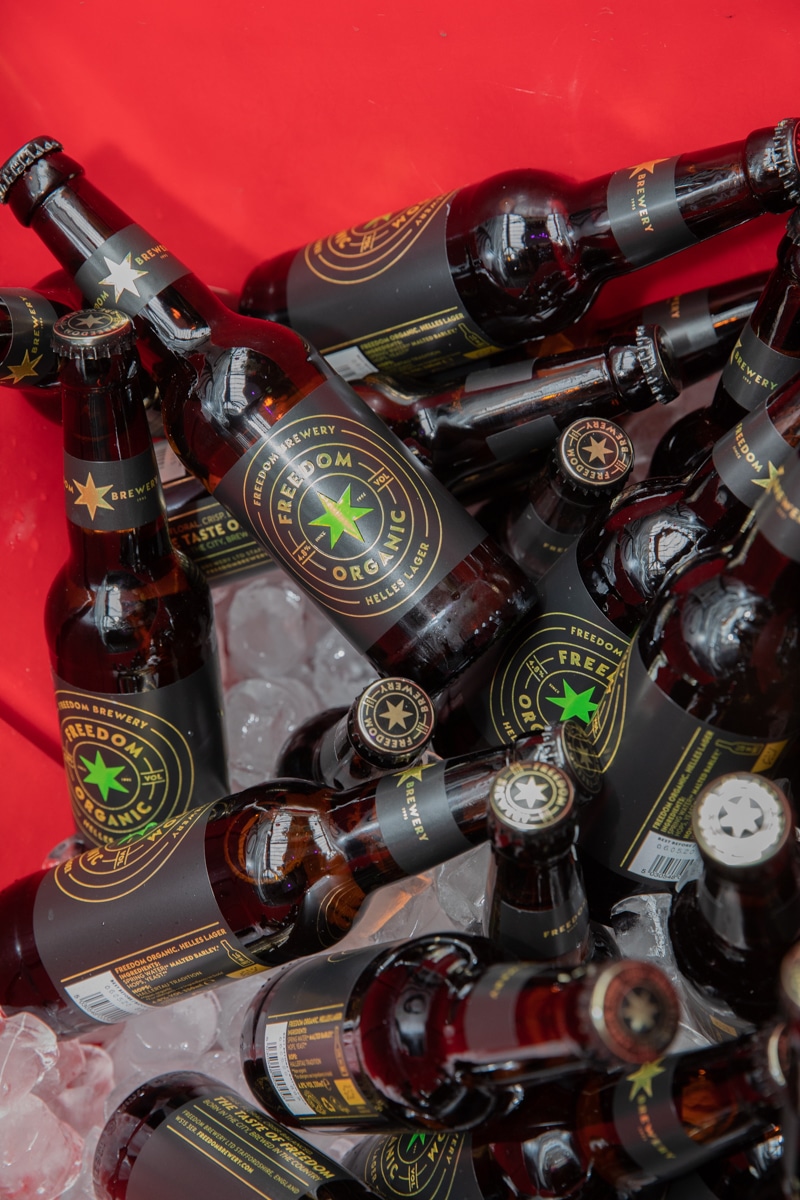
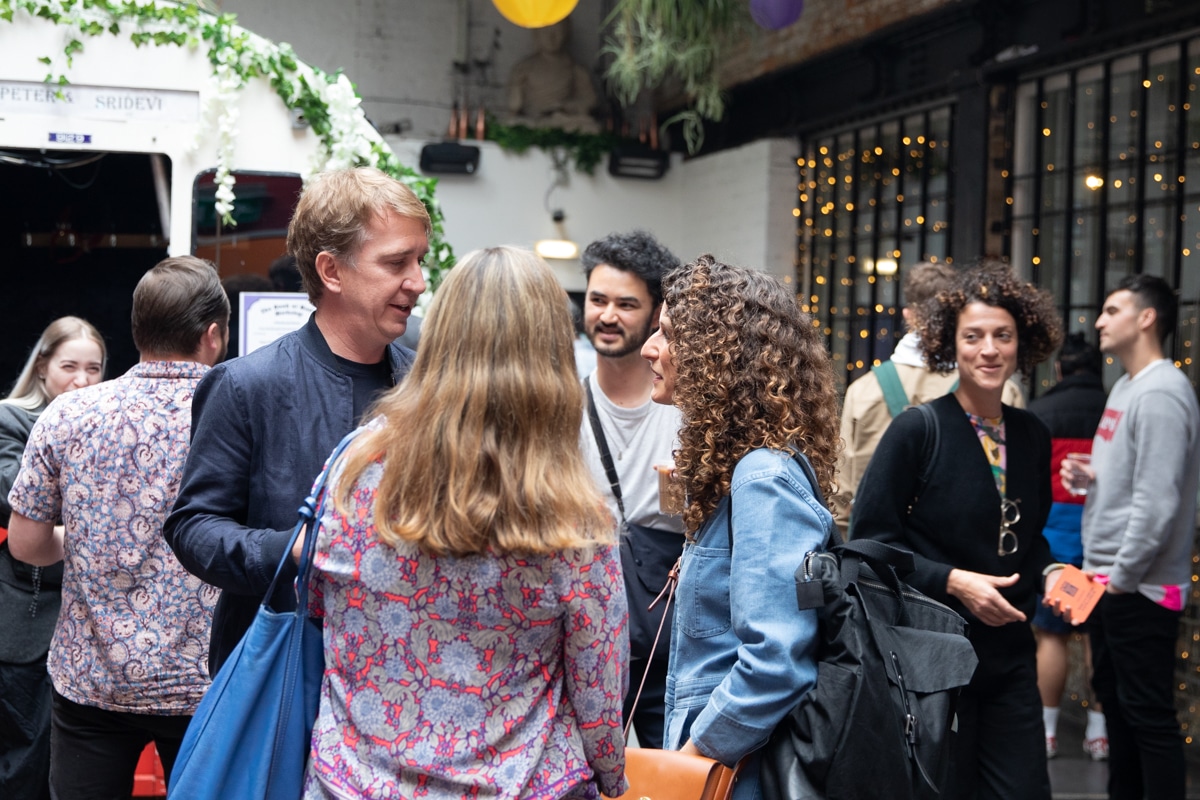
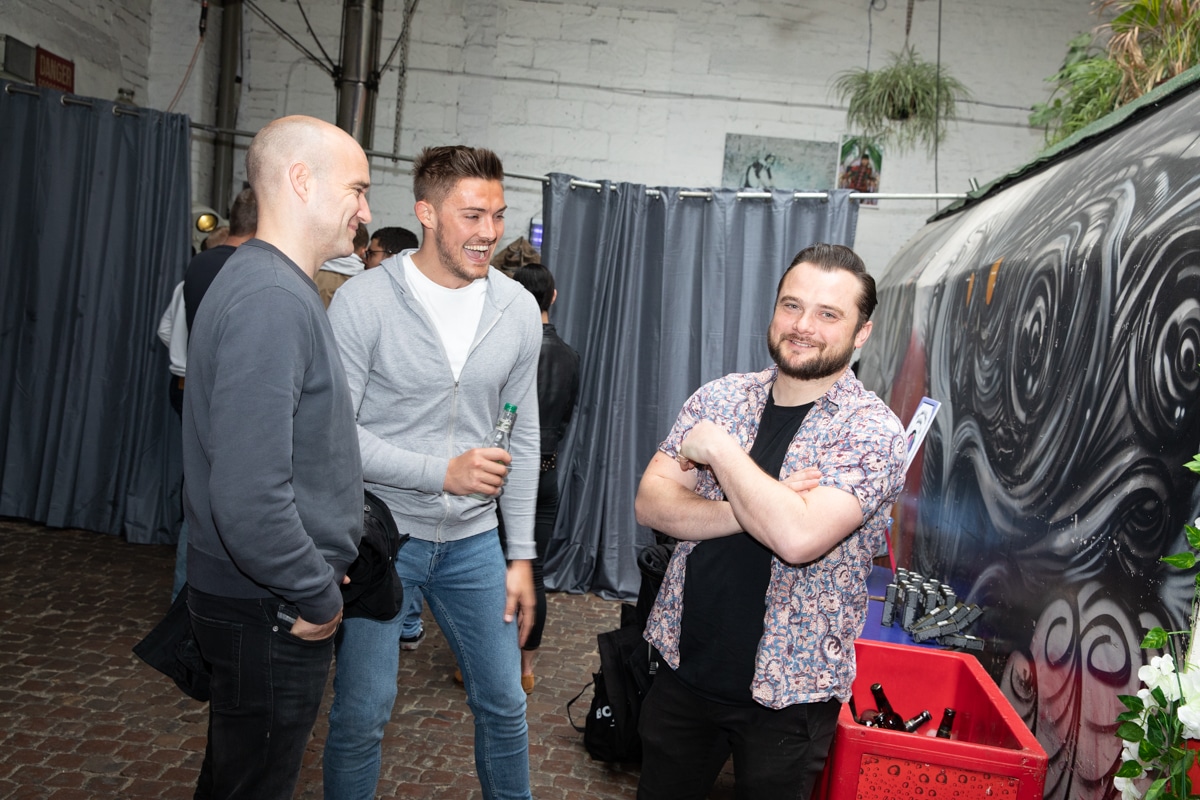
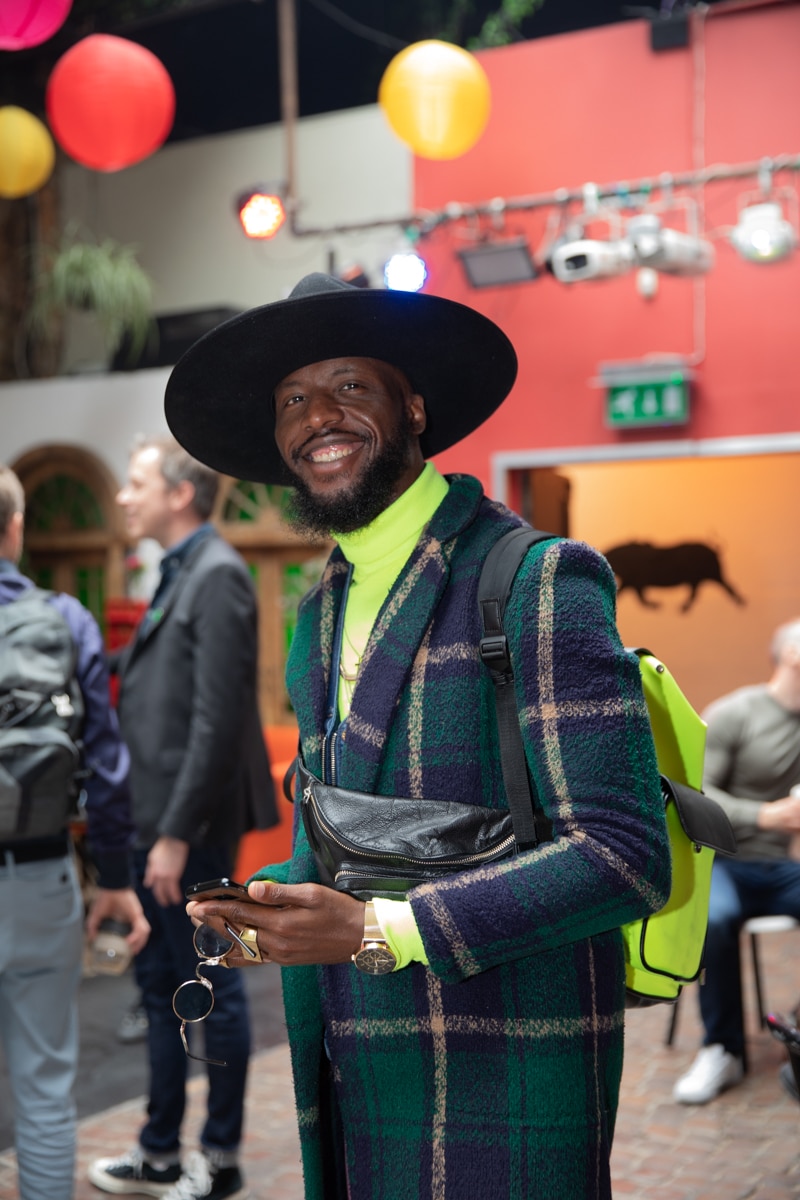
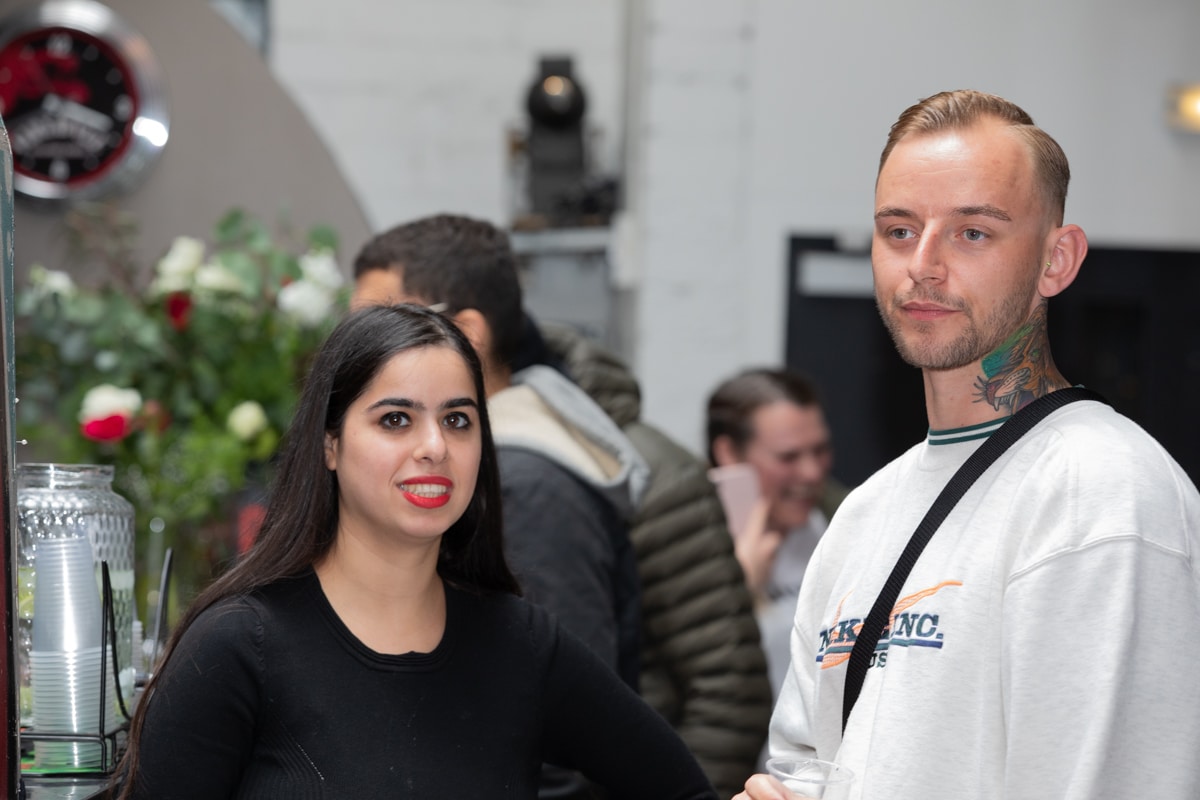
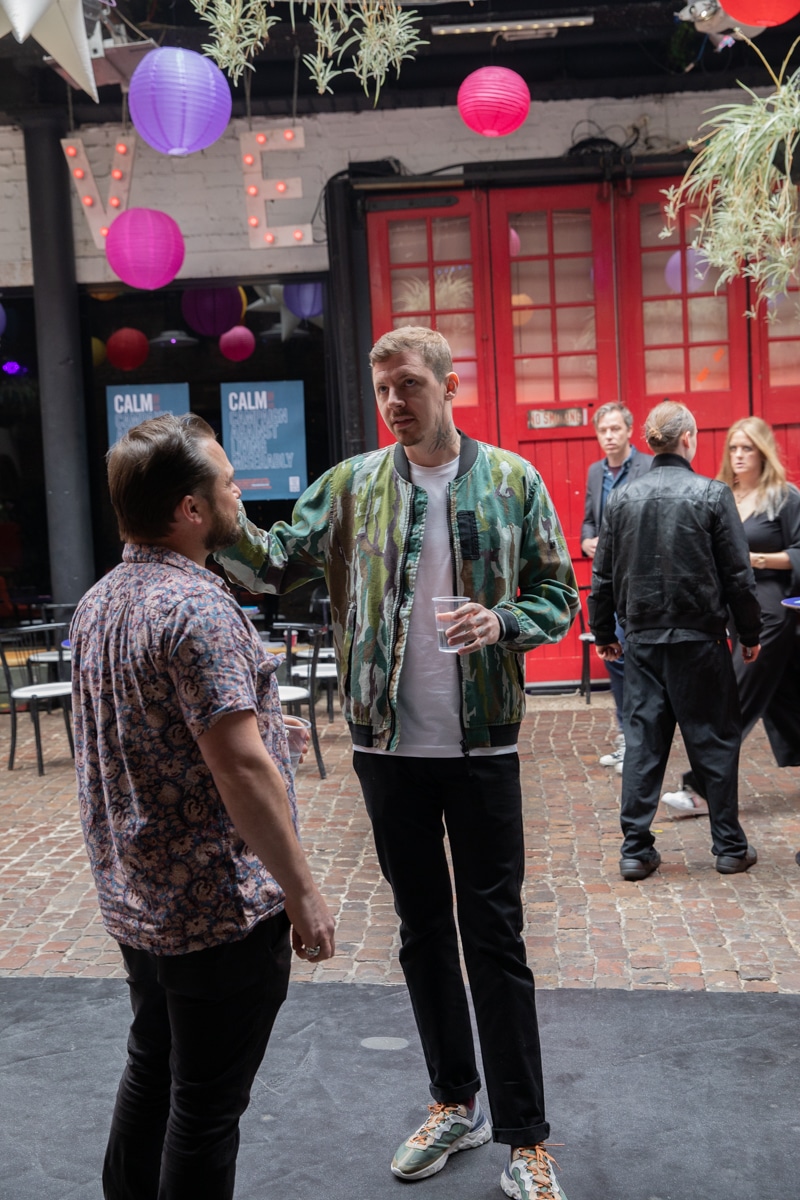

Join our Community
Sign up to our daily newsletters for stories, special offers and first dibs on tickets to our events...
Trending

Join The Book of Man
Sign up to our daily newsletters to join the frontline of the revolution in masculinity.




